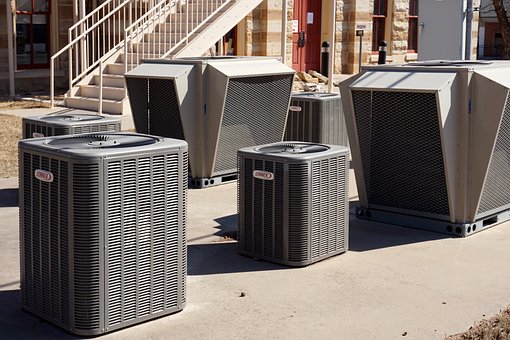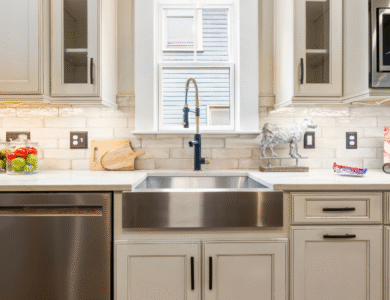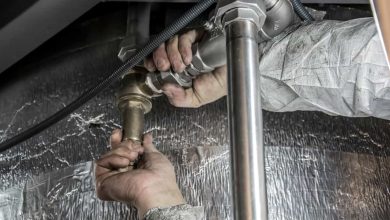There is not one standard and uniform solution for every air conditioning unit requirement. What could be ideal for a small apartment in a multi-storey building could be very different from air-conditioning of a sizeable stand-alone house. Hence it is imperative to take into consideration all the specific requirements of your climate control needs, AC features and your home air conditioning unit this summer.
Homeowner’s Guide to Choosing the Right Air Conditioning Unit
With several types of air conditioning units available on the market, it’s hard to select the “right” one for your home. But with the right tips and details on different AC features, you’ll have a better chance of making the best decision for your home air conditioning.
An air conditioner change isn’t always a wise decision. Selecting the right type of air conditioning unit is a good long-term investment. Here are some AC features to evaluate before you make a new purchase:
- Functioning: Does your current air conditioner cools your home reliably?
- Manufacturing: If it’s been more than 10 years, a replacement may be advisable.
- Reliability: Does the air conditioner suffer constant breakdowns?
- Noise: Does it make weird noises or does it leak?
- Maintenance: Is it in constant need of maintenance and repairs?
Here are a few important things to consider when buying an air conditioner:
Different Types of Air Conditioning Units
Modern homeowners commonly use central air conditioning, which uses an evaporator, condenser, and compressor as part of a single, permanent unit. Through the use of ductwork, cold air is distributed throughout the house.
Some of the popular brands and portable air conditioners in Canada are Carrier, Goodman, Carrier, Lennox, York, American Standard, Danby, Amana, Frigidaire, Costway, Whynter, Keeprite, ComfortStar, Armstrong Air, Trane

There is also a ductless split air conditioner, which, as its name suggests, utilizes air conditioning unit wall-mounted blowers to distribute air instead of ducts.
If you wish to remove heat from your home, you can also invest in geothermal cooling. Geothermal cooling utilizes underground heat distribution. You may want to consider a window unit or a portable unit if you need a smaller or simpler solution.
Different Sizes of Air Conditioners
The size of the air conditioner is another important factor you will have to consider before buying an air conditioner this summer. Too small units will not be able to effectively cool your home. On the other hand, if your unit is too big, it’s not going to run as efficiently – and it may suffer from wear and tear because of frequent cut-offs.
The cooling capacity of an air conditioner is measured in “tons,” each of which is equivalent to 12,000 BTUs per hour. According to the experts, you should go for a ton of cooling capacity for each 400-500 square feet of space.
So, a 1,400-square-foot area should have a 3-ton AC unit. However, factors such as your home’s access to shade, the age of your home, and how much insulation you have should also be taken into consideration.
Different Efficiency Ratings of Air Conditioners
Different types of Air Conditioning units are rated in terms of how efficient they are or how much energy they consume. For example, you can look at the Energy Efficiency Rating often referred to as EER. Your AC unit’s Energy Efficiency Rating (EER) is a measure of its rate of cooling at a standard temperature divided by the Watt-hours of energy it consumes.
The Seasonal Energy Efficiency Ratio (SEER) of an air conditioning unit includes calculations varying according to the seasonal fluctuations. You should go for units that are much more efficient – and capable of saving you maximum buck (in most conditions).
For expert recommendations on buying an air conditioner this summer, call Airomatic Mechanical Systems at
+1 (416) 618-1716
Consider Additional Features
In some cases, feature additions make air conditioners easier or more convenient to use, or they affect their performance in some way. For example, AC features like energy-saving modes in some air conditioners allow you to temporarily reduce your energy consumption.
Smart features like “sleep mode” also help in keeping your house cool while reducing costs. Programmable and “smart” thermostats can make your smart air conditioning unit run consistently and efficiently – and also provide more convenient control over the climate.
Consider the Sound of Air Conditioners
 You might select a powerful, efficient unit that’s appropriately sized and within your budget – but what if it is too noisy.
You might select a powerful, efficient unit that’s appropriately sized and within your budget – but what if it is too noisy.
Air conditioners these days have a very dull and barely noticeable sound to them, but some units are noisier than you may expect.
So if you are a light sleeper and prefer your home to be quiet, keep this factor in mind.
There are many good brands available in the HVAC space. Consult an air conditioning specialist to ensure you get the right-sized air conditioning unit for your home’s cooling and heating needs. It’s also advisable to hire a professional HVAC contractor to install your air conditioning unit
Much of your unit’s effective functioning and durability will depend on how it was installed. Poor or faulty air conditioner installation can affect its functionality or lifespan and also lead to a potential safety risk.
Through 15 years of our experience, Airomatic Mechanical Systems has been able to serve more than 200 hundred homeowners and do more than 600 air conditioner installations. We have more than 400 satisfied customers in Ontario, Canada. You can call: +1 (416) 618-1716 or visit www.ams-hvac.ca for ac repair, installation and replacement of your air conditioner, heating systems, air quality care systems, and fireplaces.
Also read:




